US President Donald Trump has said America will implement tariffs on pharmaceutical products, singling out Ireland, ahead of what he calls “liberation day” on April 2, next Wednesday.
Finance Minister Paschal Donohoe said last night on RTÉ that he wanted “to underline the scale of the shock... we could face”.
And yesterday, economist Dan O’Brien said April 2 “is shaping up to be the worst day in Irish economic history” since the crash in 2008, as Mr Trump eyes Ireland’s billions of pharmaceutical exports.
As he signed off on 25% tariffs on cars imported into the US on Wednesday night, the US President said there will also be tariffs on pharmaceuticals.
Mr Trump said the US “doesn’t make anything” in terms of drugs and medicines, adding: “It’s in other countries, largely made in China, a lot of it made in Ireland.
“Ireland was very smart. We love Ireland. But we’re going to have that.”
Mr Trump’s “liberation day”, when he will implement a range of tariffs, is believed to focus on what US Treasury Secretary Scott Bessent is calling the “Dirty 15” – the countries that enjoy the largest trade with the US.

President Donald J Trump and Ireland's Taoiseach (Prime Minister) Micheal Martin over St. Patrick's Day.
Analysts expect Ireland will feature on that list, either as a member of the EU, or worse, on its own.
During a recent stopover in Shannon Airport, Mr Bessent wrote ‘AMERICA FIRST!’ in the guest book.
Finance Minister Mr Donohoe told RTÉ’s Prime Time last night that it was an “open question to say the least” as to whether the US wanted to be a partner with the EU on economic issues.
He said he was “extremely concerned” about the potential impacts on the Irish economy of tariffs and a potential trade war.
He added: “I and this country have faced other really big tests and challenges in the past.
“Here this evening, I want to underline the scale of the change that we might have to deal with the various significant and real difficulties that could present for our economy.
“I do want to underline the scale of the shock of the challenge that we could face here in Ireland, one that while it’s likely to develop over the medium term will matter to households and businesses.”
“I’m extremely concerned…”
Minister for Finance @Paschald warns that US tariff threats pose “significant and real difficulties” for Ireland’s economy — but says, “collectively, we will be able to rise to the test ahead.”
WATCH:@rtenews | #rtept pic.twitter.com/B4zHgXU0if
— RTÉ Prime Time (@RTE_PrimeTime) March 27, 2025
Read more
However, he added, “We are approaching this from a position of strength, with public finances that are in surplus with 2.8 million people at work in our country.”
He also pointed out that 60% of drugs made in Ireland were sent to Europe to be sold there and also acknowledged that it would take a long time for a pharmaceutical company to move back to the US and begin making drugs back there.
Earlier yesterday, chief economist of the Institute of International and European Affairs Mr O’Brien sounded a more ominous tone, saying: “April 2 is shaping up to be the worst day in Irish economic history since September 29 2008 and December 2010 [when the bailout happened].
“Immediate effects of tariffs will not be dramatic but the longer run impact on Ireland’s economic model could well be more profound than 2008/2010.”
He warned that while the financial crash “blew the roof off the house”, the proposed tariffs and their effects could “pull out the foundation” of the Irish economy.
Ireland is one of the largest pharmaceutical exporters in the world due to several large US companies operating manufacturing sites across the country.
At the end of 2024, Irish exports to the US rose to €72.6bn, of which €44.4bn were from the pharmaceutical and medical sector, according to the ESRI.
Speaking in Paris yesterday, Taoiseach Micheál Martin said that he met with Tánaiste Simon Harris, Finance Minister Donohoe and Public Expenditure Minister Jack Chambers on Monday to “game various scenarios” and work through what may transpire in relation to US tariffs and global trade developments.
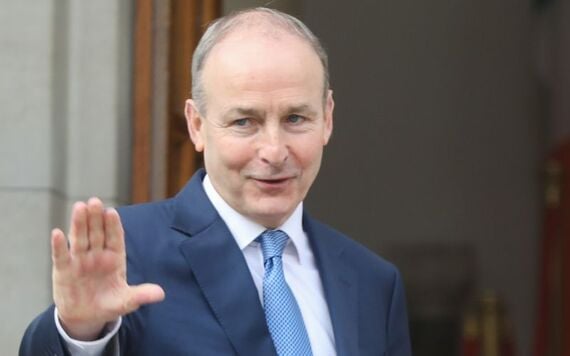
Taoiseach Micheál Martin.
The move is reminiscent of the Economic Management Council that was established during the crash, when Fine Gael’s Enda Kenny and Michael Noonan met their Labour counterparts in Eamon Gilmore and Brendan Howlin on a weekly basis.
Sources confirmed that there would likely be more regular meetings between the four as the Government grapples with potentially highly damaging economic tariffs by the US administration.
“We don’t understate the seriousness of the impact of such tariffs on the European economy or the Irish economy,” the Taoiseach said.
“We are worried, we are concerned about it, but we are working flat out.”
He said the Government had been keeping close contact with the pharmaceutical industry to identify “in a more detailed way” the exposures of particular companies.
Mr Martin concluded that without a resolution, a trade war will have very negative consequences for all involved.
Other Cabinet sources were keen to point to the “nuances” of the activities of multinational companies in Ireland, saying that they wanted to sell into the EU and further afield in the Middle East and needed a base here.
They acknowledged that there were some companies based here with a concentration on the US.
They said the “big challenge” was still the lack of clarity from the US on what the precise nature of the tariffs would be and what the EU Commission is precisely planning in response.
Tánaiste Mr Harris said: “Whilst we are entering a period of uncertainty, of that there is no doubt, we will work our way through it.”
Read more
He said they had entered into more intensive discussions with Ireland’s EU partners to prepare a “strategic and coordinated response” to US tariffs.
He said that he hoped that the US got “to the table” after they enforced the tariffs.
Mr Harris said Ireland continues to engage with colleagues in Europe and the US on trade policy, adding that he spoke to both US Commerce Secretary Howard Lutnick and EU Trade Commissioner Maros Sefcovic this week.
There are also “tentative” plans to visit the US following his call with the Mr Lutnick this week.
Another senior Government source said that while there are no concrete plans in place to assist or respond to tariffs domestically, nothing is off the table.
“We are in a position where we are waiting to see the shape of the final tariffs. It has huge implications for us,” they remarked.
Speaking in the Dáil yesterday, Mr Donohoe said Ireland’s first priority is “how we engage with the United States”.
He said he acknowledged the “difficulty of that engagement”, adding: “Second, what we have made very clear is that engagement is now under way between Ireland and our partners within the European Union on what an appropriate response could be.
“Third, what the Government has been doing for many years, and will continue to do, is look at the measures that can be put in place to strengthen our budget, our jobs and our enterprise economy.”
It is understood that Mr Donohoe gave a “very stark” presentation to the Fine Gael parliamentary party this week on the potential impacts on the economy.
One Cabinet minister said: “He couldn’t really assure us that there wasn’t going to be job losses and a big hit to our economy. He couldn’t guarantee that we would be able to do some things in our budget. This could be a very significant shock to our economy.”
Irish businesses are being encouraged to frame their discussions with the European Commission in the language that reflects that “Ireland is at the heart of Europe”.
There remains hope in Government that Ireland’s historic relationship with the US may spare us the worst of the trade war.
One Cabinet minister pointed to the 32 million people in the US who claim Irish heritage as a “big block”, which had been a key part of Trump’s electoral victory.
Read more
* This article was originally published on BusinessPlus.ie.
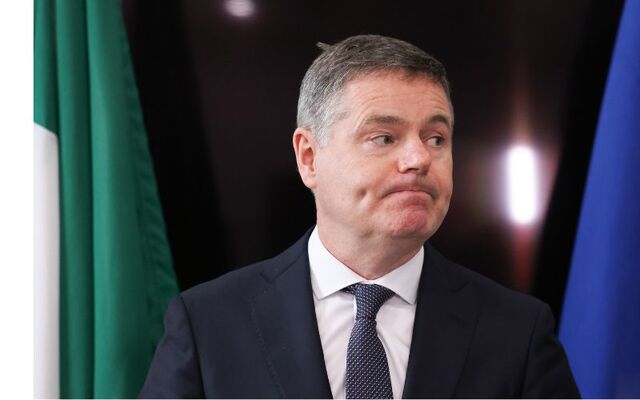
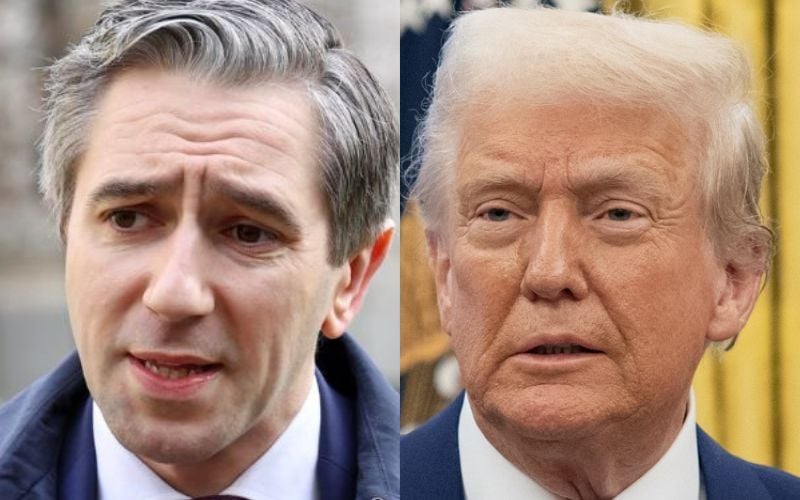
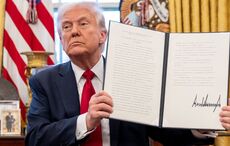
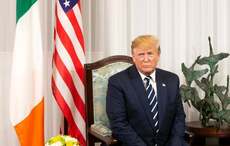
Comments